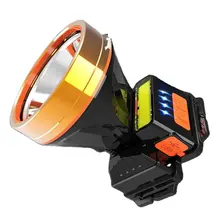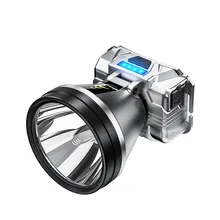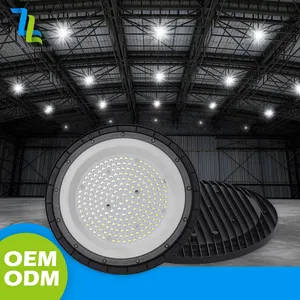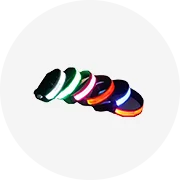What are Canopy Lights?
Canopy lights are specialized lighting fixtures designed for installation in areas with overhead structures, such as the undersides of canopies, awnings, and gas station overhangs. They provide bright, directed illumination to enhance visibility and security in various commercial and industrial settings. These lights are particularly beneficial for businesses that operate during nighttime hours or in areas where additional light is necessary to ensure the safety of patrons and employees.
The design of canopy lights often includes durable, weather-resistant materials to withstand the elements while offering a sleek aesthetic that blends seamlessly with different architectural styles. The illumination principle behind canopy lights involves the use of high-efficiency LED chips, which are known for their longevity, reduced energy consumption, and superior luminosity compared to traditional lighting technologies. Advanced optics are employed within these light fixtures to distribute light evenly across the intended area without causing glare or light pollution.
Businesses such as gas stations, warehouses, sport stadiums, hotels, and office buildings frequently use canopy lights for exterior applications. However, they are also suitable for residential settings, roads, landscapes, and indoor applications like gyms and supermarkets. With various controlling modes available—ranging from switch control to sensor, remote, app, and even voice control—canopy lights offer flexibility in operation tailored to the specific needs of a site.
Types of Canopy Light
Different types of canopy lights cater to diverse lighting needs and applications. Here's an overview of some common variants:
LED Canopy Lights: These are energy-efficient fixtures that utilize LED technology to provide high-intensity lighting. They're widely used in gas stations, warehouses, and industrial settings due to their long lifespan and low maintenance requirements.
High Bay Canopy Lights: Designed for high-ceiling environments like sport stadiums or large-scale workshops, these lights deliver powerful illumination from a greater height, ensuring even light distribution over a wide area.
Recessed Canopy Lights: These fixtures are installed into a recess in the ceiling or canopy structure, creating a sleek profile that is less intrusive to the overall design of the space. They are commonly used in hotels, offices, and certain retail settings.
Explosion-proof Canopy Lights: For environments where flammable gases or dust may be present (such as certain industrial areas), explosion-proof canopy lights are designed to prevent the ignition of external hazardous atmospheres.
Solar-powered Canopy Lights: These eco-friendly options harness solar energy to power the lighting fixtures. Ideal for outdoor landscapes and locations where wiring may be challenging, they contribute to energy savings and sustainability goals.
How to choose Canopy Light
Selecting the right canopy light for your business requires careful consideration of several factors:
Application: Identify the primary use case for the lighting—gas stations will have different requirements than sports stadiums or hotels. Consider whether you need general illumination or focused lighting for specific tasks.
Lighting Solutions Service: Some canopy lights come with services like Dialux evo layout or project installation assistance. Determine if you need professional help with designing the lighting layout or if you can manage with a standard setup.
IP Rating: The Ingress Protection rating indicates how well the fixture is protected against dust and water. For outdoor or harsh environments, a higher IP rating (such as IP65 or IP67) is crucial for durability.
Support Dimmer: Decide if you need adjustable light levels. Some businesses may benefit from dimmable features for energy savings and ambiance control.
Lamp Body Material: Materials like aluminum alloy or die-cast aluminum offer durability and heat dissipation properties—important factors for long-term performance of LED canopy lights.
Controlling Mode: Automated controls such as sensor activation or remote control can add convenience and efficiency to your lighting system.
By evaluating these considerations in line with your business needs, you can make an informed decision on which canopy light will best serve your commercial objectives.
Best Canopy Light on Alibaba.com
For businesses seeking reliable canopy lighting solutions that cater to a vast array of commercial applications, Alibaba.com stands as an essential marketplace. The platform offers access to an extensive selection of canopy lights from suppliers around the globe who understand the diverse needs of different industries. Whether it's robust lighting required for a bustling gas station or aesthetic yet functional illumination for a hotel's exterior walkway, Alibaba.com connects businesses with vendors offering products that align with their specific requirements.
What makes Alibaba.com especially attractive is its commitment to simplifying international trade. The platform provides useful tools like mobile buying features and multi-language communication options that facilitate seamless transactions between buyers and suppliers from various countries. Moreover, services such as Trade Assurance give buyers peace of mind by securing their payments until delivery is confirmed.
In summary, Alibaba.com offers an efficient way for businesses to source high-quality canopy lights that meet their unique needs while ensuring transaction security and supplier reliability. With its global reach and user-friendly platform features, Alibaba.com empowers businesses worldwide to enhance their premises with appropriate lighting solutions efficiently.
Common FAQs for Canopy Light
What are the energy efficiency benefits of LED canopy lights?
LED canopy lights are known for their high luminous efficacy, which means they provide more light output per unit of power consumed compared to traditional lighting technologies. This results in significant energy savings and lower utility costs for businesses.
How do I determine the appropriate IP rating for canopy lights in my facility?
Consider the environment where the canopy lights will be installed. For indoor or protected outdoor areas, a lower IP rating might suffice, but for exposed or harsh environments, a higher IP rating (IP65 or above) ensures better protection against dust and water ingress.
What type of canopy light is recommended for high-ceiling applications?
High Bay Canopy Lights are specifically designed to cater to environments with high ceilings such as sport stadiums or large warehouses, providing even light distribution from elevated positions.
Can dimmable canopy lights contribute to energy savings?
Yes, dimmable canopy lights allow for the adjustment of light intensity according to need, which can lead to energy savings by reducing power consumption during times when full brightness is not required.
Are there canopy lights available with integrated motion sensors?
Yes, many canopy light fixtures come with sensor control options that allow the lights to activate only when motion is detected, enhancing energy efficiency and providing convenience.
What should I consider when choosing the material for canopy light fixtures?
The material of the canopy light fixture should be durable and capable of heat dissipation. Aluminum alloy and die-cast aluminum are common choices due to their resilience and ability to extend the lifespan of the LED components.
Is it possible to control canopy lights remotely or via an application?
Canopy lights with remote control or app control features offer flexibility in operation, allowing users to adjust lighting settings from a distance or through a smartphone application.
How does the controlling mode of a canopy light affect its operation?
The controlling mode can impact the ease of use and functionality of the light. Options such as switch control offer basic on/off functionality, while sensor control and remote operation add automation and convenience.
What considerations should be made for explosion-proof canopy lighting?
For areas prone to flammable gases or dust, explosion-proof canopy lights are essential as they are designed to prevent external ignitions that could lead to hazardous explosions.
How does solar-powered canopy lighting work?
Solar-powered canopy lights utilize photovoltaic panels to convert sunlight into electricity, which is then used to power the LED lights. They are ideal for locations without easy access to electrical infrastructure and support sustainability efforts.







































 浙公网安备 33010002000092号
浙公网安备 33010002000092号 浙B2-20120091-4
浙B2-20120091-4